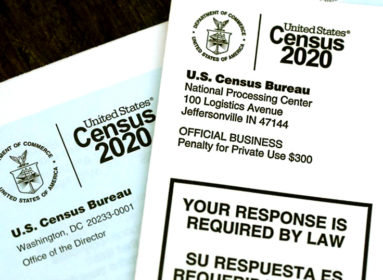
Is it appropriate for rabbis to discuss from the pulpit whether or not to support the Iran nuclear deal?
Everyone seems to be debating the pros and cons of the Iran nuclear agreement – at least everyone in the Jewish community. But what about our spiritual leaders? Should they be advocating for or against the agreement? Recently, we asked Connecticut’s pulpit rabbis to respond to the above question. Here is what a few had to say.
 Rabbi Mitch Hurvitz
Rabbi Mitch Hurvitz
Temple Sholom
Greenwich
In any meaningful democracy there needs to be an accurate reflection of its citizenry, and religious affinity groups should advocate for moral positions they feel are especially important.
However, rabbis should be careful not to become involved with party politics.
Our responsibility is to find effective ways to mediate conflicts while building a greater sense of shared identity.
The rabbi should attempt to foster very respectful dialogue, and facilitate “arguments for the sake of heaven.”
Ultimately, one hopes that the “congregational family” can hold on to their love for each other and validate the feelings for those they love, even when there are serious disagreements.
 Rabbi Yossi Deren
Rabbi Yossi Deren
Chabad Lubavitch
of Greenwich
I’m tempted every week to chime in about all the hot news blaring across the world. But most of the time I don’t. Here’s why:
- Rabbi means “teacher.” If a rabbi has something that will enlighten the perspective of those who are listening to him, with the wisdom of Torah in regards to a particular issue, then he should say it. If he is merely expressing his own opinion, then it’s just one more voice in the cacophony of seven billion other voices.
- Chabad rabbi means “a teacher steeped in the wisdom of Chabad philosophy as taught by the Rebbe (our Chief Rabbi).” Chabad philosophy is based on the spiritual mystical tradition of our people, wherein the relevance of Torah to every detail of life becomes even more apparent.
Can I teach you anything meaningful in regards to the presidential campaign? Highly doubtful. (Although if I’d give in to my temptation I’d probably say something like: “I’d love to see a Sanders-Trump match-up; anything else will be boring, predictable and disappointing…”)
Can I teach you anything meaningful about the Iran nuclear deal? Perhaps, but you probably heard it already. What I will say though is “Don’t tell me you love the deal. Don’t tell me you hate the deal. Tell me what we should do today to create enduring peace on our planet, eliminating all bloodshed.”
Can I teach you anything about the Planned Parenthood controversy? Actually, here is some food for thought: Jewish Law does not exactly line up with the “pro-life” stance. For instance, halacha tells us that protection of the mother’s life overrides the life of the fetus.
Can I teach you anything about Cecil the Lion? Ah, now here we can dig in a bit…
 Rabbi Craig Marantz
Rabbi Craig Marantz
Congregation Kol Haverim
Glastonbury
Yes. It’s appropriate to comment on Iran from the bimah, especially if our teaching reflects enduring Jewish values like ahavat Yisrael (love of Israel), emet (truth), tzedek (justice) and talmud Torah (Torah-based learning). But I think we have to exercise caution because the issue is so controversial. As a rabbi, I want to make sure I am speaking to everyone in my congregation no matter where they find themselves on the spectrum of public opinion. It’s important to approach the issue with some balance.
We seek clarity and comfort about Israel’s security. When it comes to protecting Israel’s safety, my footing is firm. The U.S. and other allies must collaborate with Israel to guarantee its long-term vitality. However, while minimizing existential, nuclear threats to Israel makes obvious sense, America’s nuclear deal is a slippery slope. I don’t possess nuanced geopolitical and military grounding to judge authoritatively the deal’s merits and weaknesses. But then, my limited insight is no excuse to remain on the sidelines of this critical dispute. In fact, given recent, highly-partisan rhetoric in Washington and given Judaism is about principled debate, I hope we can learn to argue with more discipline and moderation – and education. Because two things seem true: one, there are enough legitimate pros and cons to fuel compelling debate; and two, the incendiary commentary impedes the argument with name-calling and half-truths. Neither protect Israel’s security.
We learned last week in parashat Va’etchanan the dangers of provocation. Moses warns the people that once they settle Israel they might be tempted to forget the brit (covenant) with God and do what is evil, deliberately provoking the Holy One (Deut. 23-25). If they commit these transgressions, Moses warns they will merit God’s harsh response.
I don’t really know the heart and mind of Iran’s supreme ruler. On one hand, his anti-America/Israel rhetoric and his dismissiveness about the inspections process set off all the alarm bells and rightfully so. He says Iran will deliberately break the agreement. This provocation deserves the harsh response it gets. And, we can understand why Israel demands a tougher deal. But is that all there is to it?
The U.S. has had major success negotiating with mortal enemies, like Russia and China; making substantial progress and improving relations. Such success with Iran could go a long way in stabilizing the Mideast and guaranteeing Israel’s security. Politicians grandstand. They bide time. Maybe the supreme ruler, like Machiavelli’s Prince, is pragmatic – holding his hard-liners at bay with hot speech about Israel and her allies and talking tough about inspections. Meanwhile, with sanctions lifted, he’ll raise the life level of his citizenry to whom he’s ultimately accountable and normalize (or at least improve) relations with the U.S. and her allies, a scenario in which Israel will be fine. I know this is the outcome on which President Obama is gambling. This deal, any deal, whether we think it’s acceptable or not, is a bet that all parties will do their conscientious part to minimize Iran’s nuclear threat and shape a safer world. I hope the president’s wager pays off.
Kain yehi ratzon! May it be God’s will.








 Southern New England Jewish Ledger
Southern New England Jewish Ledger









